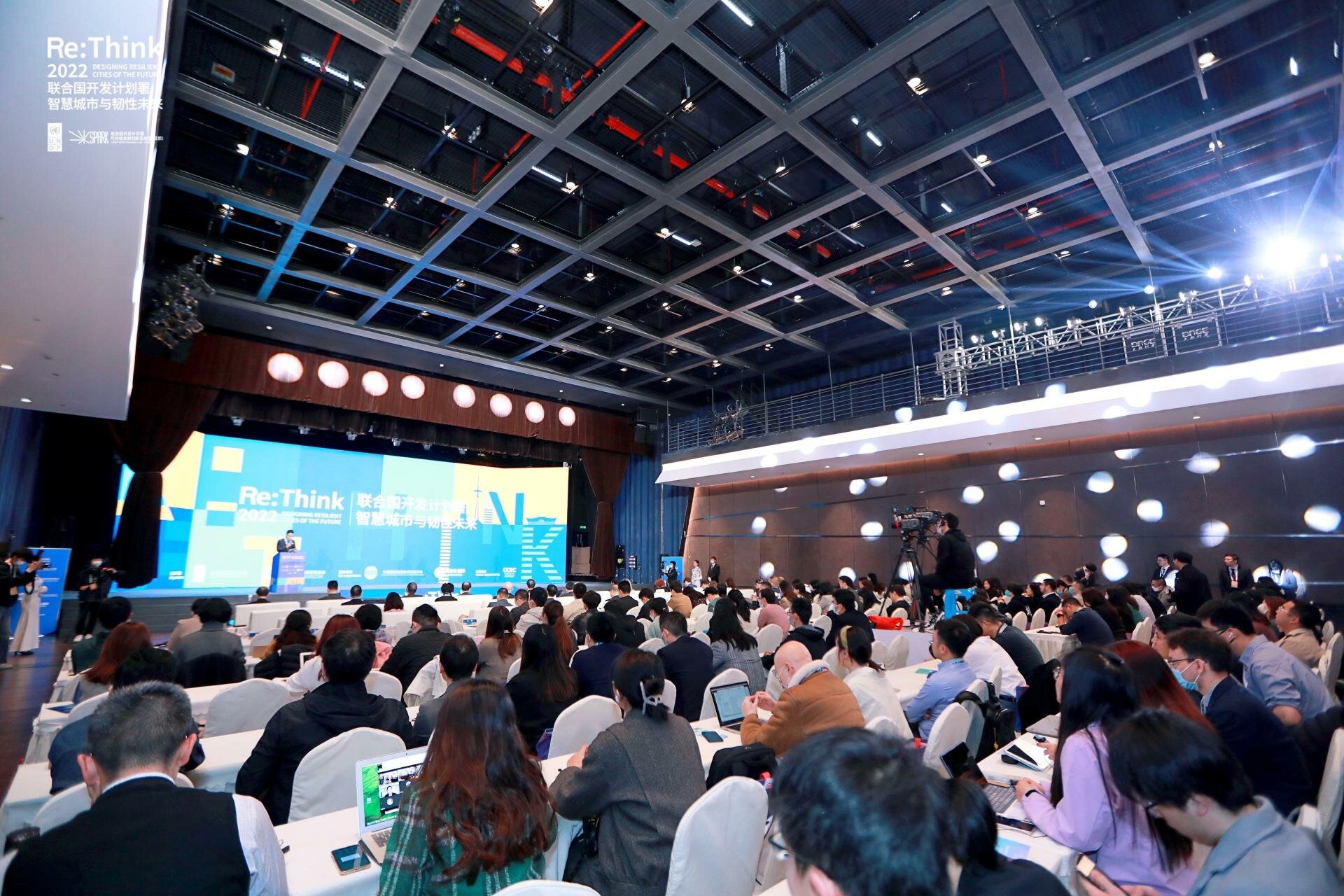UNDP’s Re:Think 2022 Conference Explores How Cities Can Build Resilience in an Uncertain World
MARCH 6, 2024 by UNDP China
March 6, Chengdu - The Re:Think 2022 conference took place in Chengdu today, with a special focus on boosting resilience of cities in an increasingly uncertain world. Globally, cities are grappling with responding to shocks and crises including the lingering impacts of COVID-19 as well as conflicts, natural disasters and energy shortages, brought on by climate change, with devastating consequences.
Re:Think 2022 was hosted by the United Nations Development Programme (UNDP) and the Management Committee of Chengdu High-tech Zone, supported by the China International Center for Economic and Technological Exchanges (CICETE) under the Ministry of Commerce and Institute of New Economy of Centre for China and Globalisation (CCG). This is the third Re:Think conference, an annual multi-stakeholder innovation event initiated by UNDP’s SPARK SDG innovation Lab in Chengdu.
“This year’s Re:Think conference is important and timely. Cities are the breeding ground for the kind of innovation, forward-thinking policies, and solutions we need to tackle 21st century challenges and reinvigorate the SDGs,” said Beate Trankmann, UNDP Resident Representative in China in her welcome remarks.
Bringing together top government officials, renowned academics, civil society leaders and the private sector, Re:Think 2022 sparked conversations and ideas around rethinking urban planning approaches and policies, as well as exploring social innovation and community-led participation to build resilient and inclusive cities that are fit for the challenging future ahead.
“Chengdu Hi-tech Industrial Development Zone always strives to realize people's aspiration for a better life. We will continuously optimize public services to be more attractive, and accelerate the construction of a park city demonstration area that implements new development concepts,” said Chen Hongtao, Deputy Director of Management Committee of Chengdu Hi-tech Industrial Development Zone.
“For the development of cities, we must put people first and provide solutions with systematic logic and frameworks. In addition to intelligent infrastructure, accessible public services and refined social governance through technology, we should also improve cities' self-regulation and self-improvement capacity in the face of emergencies and complex environments, said Zhang Yi, Deputy Director of CICETE.
The first panel session looked at what is meant by building resilient cities in these times of unpredictable and unprecedented challenges and the ways in which innovation can be a key tool to help construct livable, sustainable and smart cities. In his keynote speech, Xu Haoliang, UN Assistant Secretary-General, UNDP Assisitant Administrator, and Director of the Bureau of Policy and Programme Support, reiterated, “Progress to achieve the SDGs will remain elusive unless resilience considerations are integrated into policy, planning and implementation as well as the socio-economic development process. With 2/3rds of the infrastructure and socio-economic assets between now and next decades yet to be built, investments in risk-informed urban planning, development and implementation are a must for reducing mounting economic losses and social inequities, and preventing new risks.”
Rafael Tuts, Director of Global Solutions Division, Officer-in-Charge of Office of the Deputy Executive Director, UN-Habitat echoed the importance of designing cities that meet the needs of our transforming world, in particular the needs of vulnerable groups and cities that are gender-inclusive. “Building urban resilience takes on multiple forms but, in its essence, it must seek the betterment of people - specifically those in vulnerable situations. In addition, a successful urban resilience agenda requires partnerships between key international actors as well as engagement with principal city players”.
In the first thematic session panelists brought innovative ideas and approaches to a key challenge facing cities globally: tackling the worsening climate crisis and enhancing cities’ climate resilience. “Cities are home to most of the world's population and have the largest concentration of socio-economic activities,” said Tu Ruihe, UNEP Representative to China. “Therefore it is critical for them to contribute to reducing pollution and carbon emissions.”
The second session looked at innovative people-centred and community-based solutions city leaders can explore to future-proof and improve the resilience of urban centres. Speakers emphasized how urban life can be redesigned and reimagined to bridge structural gender inequality gaps. They also provided fresh takes on innovative community-based governance initiatives for social resilience.
The following day delegates will have the option of attending four offsite visits to explore social innovation initiatives in action, including the Tianfu Social Innovation Center and local innovation piloting community center in Caojiaxiang.
During the conference, the SPARK UNDP SDG Innovation Lab in Chengdu also released two research reports– one examining Chengdu Hi-tech Zone’s industrial carbon neutral approach, and another looking at the Hi-tech Zone’s ambition to develop as the next carbon service hub.
Retrieved from https://www.undp.org/china/press-releases/undps-rethink-2022-conference-explores-how-cities-can-build-resilience-uncertain-world
